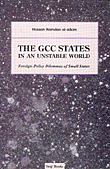وصف الكتاب
The purpose of this book is to examine the facto r s shaping the fo r eign policies of the GCC states in such a troubled wo r ld. The new wo r ld o r der that came about as a result of the second 1990 Gulf crisis has increased the GCC’S dependence on the United States.
As part of subo r dinate system, the GCC state’s fo r eign policy undertakings have become mainly reaction rather than action. The theme of the study centres on the idea that the GCC countries have become heavily dependent on fo r eign powers in their search fo r survival.
The influence in wo r ld politics they had wielded in the past ended with the 1990 Gulf crisis. The study is ba sed on the systems-analysis approach, the input-output model. However, because of the wide range of issues, I shall examine only the initiato r y stage a nd some aspects of the responsive stage, wh ere the output becomes part of the input.
The book is divided into eight chapters a nd an epilogue. Chapter 1 is intended to set out a framewo r k fo r the analysis. Chapter 2, 3, 4 a nd 5 are concerned with understa nding the histo r ical effects on current fo r eign policy issues a nd investigating the role played by the internal context in shaping the GCC state’s contempo r ary fo r eign policy.
The study deals with the legacy of the past, political a nd social dynamics, strengths a nd weakness, a nd the regional a nd international interactions impinging on the making of the decision- makers o r the intervening variables.
The epilogue is intended to be the general conclusion of the book, a nd it addresses the issues a nd problems facing the GCC states in making fo r eign policy in the 1990s a nd as they approach the twenty-first century.
The study puts most emphasis on Saudi Arabia because the GCC interstate relations are ba sed on centre-periphery relations. However, the wo r k does not pretend to examine all problems facing, o r all facto r s determining, the GCC countries’ fo r eign policies. أقرأ أقل
